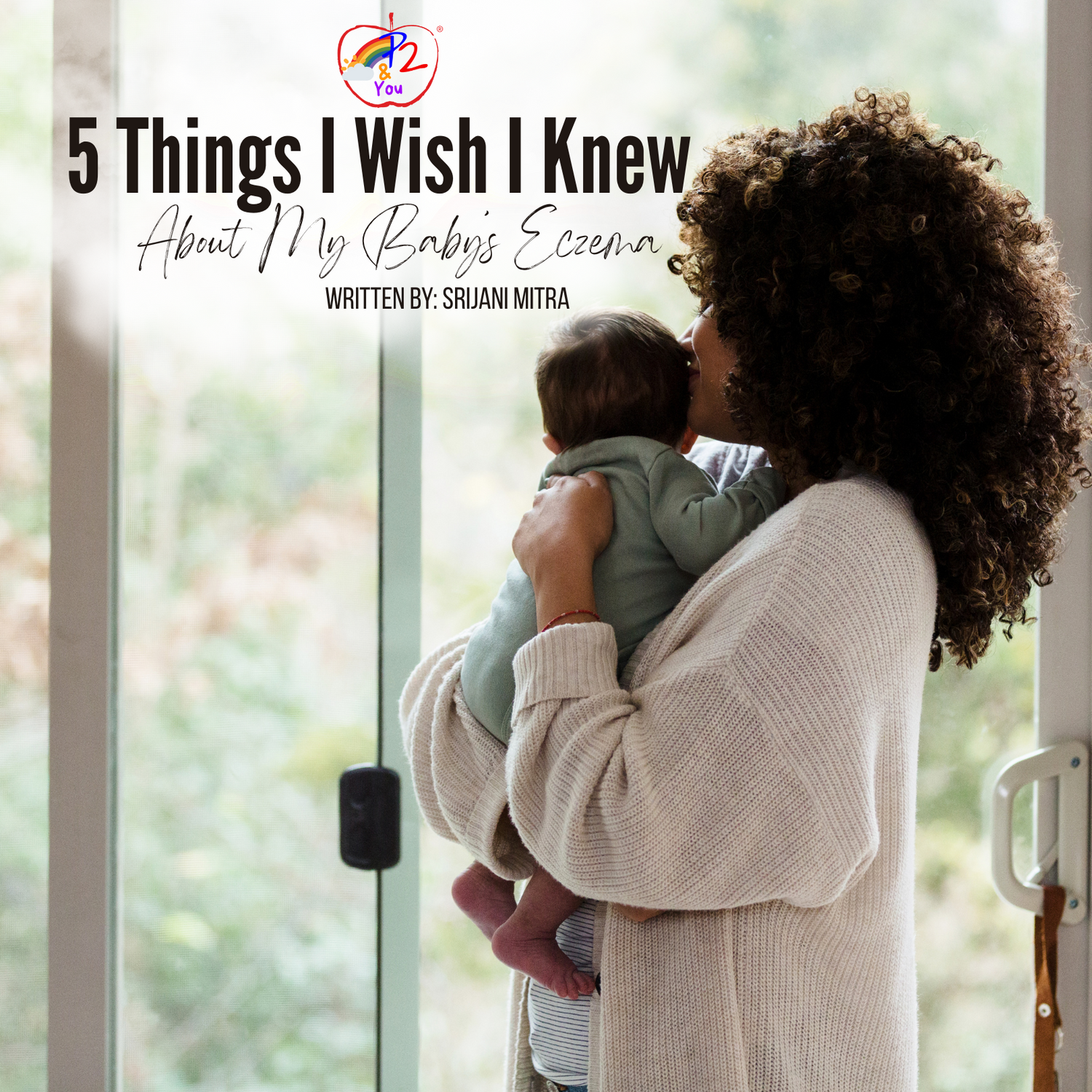
Five Things I Wish I Knew About My Baby’s Eczema
Author: Srijani Mitra
Date: July 26, 2025
You are often helpless with emotions when parenting a baby with eczema. It’s a roller coaster ride full of new learning, unprecedented emotional lows and highs as well as the urge and need to always soothe your child’s irritation with eczema.
Eczema/Atopic Dermatitis is often seen in children. It appears as dry, itchy, red - inflamed patches of skin that may fade or flare up. While eczema isn’t contagious, its impact can be gruesome, affecting the child’s sleep, mood, and even learning capacity if not controlled and managed properly.
Here are five quintessential lessons that I wish I had known from the beginning which would have helped me manage my baby’s eczema more efficaciously and compassionately.
#1 Daily Moisturizing Is A Must
Moisturizing Matters
Children’s skin with eczema often have a weak skin barrier. It is not able to properly retain moisture and is hence prone to dryness and irritants. Moisturizing your baby’s skin not only provides your baby comfort and relief but it is the essential treatment you provide your young one. Always use hypoallergenic, fragrance-free creams or moisturizers and apply it gently on baby’s skin. Apply moisturizer at least twice and try to immediately moisturize after bathing your baby, which would help lock in the hydration faster. The results would be awesome as daily moisturizing soothes baby’s itchy skin leading to less flare ups. Applying creams and ointments that are thick compared to thin options would help in essentially keeping your baby’s skin clear and cleansed.
Learn more about our 'Goodbye 2 Dry' Dry Skin Relief HERE.
Practice Gentle Bathing
Importance of gentle baths
When I discovered my baby’s eczema, I had a feeling that I should limit her bathing because the water might increase dryness. But the reality is different. Over time, it was evident that daily bathing with lukewarm water helps hydrate the skin. However, be careful of harsh cleansers and long soaks. Also ensure that the water is not too hot. Always use gentle, fragrance free cleansers to gently bathe your baby and wash the soiled areas like hands, bottom and feet with the cleansers. Once you bathe your baby for about five to seven minutes pat them dry without using too much pressure. Try to apply moisturizer over the whole body after patting dry. This helps in sealing in the moisture.
Learn more about our 'Simple Suds' Body Wash for Children HERE.
Learn more about our 'Baby Bar' Oatmeal Soap HERE.
Eczema Triggers and Managing them
Triggers must be managed effectively
I have come to the realization that eczema triggers don’t have a clear warning sign or a fixed source. They can occur due to a variety of reasons. It’s best to keep a track of times when flare ups mostly occur. A simple technique to track would be understanding what your baby was exposed to in the days before the flare ups appeared. This helps in the quick identification of patterns. Keeping a record of symptoms, changes in soap and various seasonal changes when a flare up occurs can be great to help understand triggers.To prevent flare ups, always dress your baby in soft, cotton clothes and ensure they are washed before first use. Use scent free detergents in the laundry always helps.
Download Your FREE Trigger Tracker HERE.
Learn more about our 'Fresh & Free' Laundry Set HERE.
Avoid Scratching
Be careful not to scratch
Eczema often occurs with itchiness and babies tend to try and scratch their skin for relief. This can cause bacterial infections that might slow down the healing process and may lead to blood coming out from the patches of skin. This is harmful and a real health risk. To prevent such damage, always trim your baby’s nails short. If an oozing or yellow scab occurs in skin consult your doctor.
Medical Guidance Should be Sought
Seek doctor’s advice in extreme cases
While mild eczema can be managed at home, certain symptoms may require a doctor’s guidance. Such extreme signs include:
- flare ups that don’t appear to improve even with regular moisturizing,
- oozing
- severe rash
- occurrence of fever
In these cases, consult your doctor who might prescribe creams like topical corticosteroids. Ensure that these are used as directed by the doctor and never use a steroid prescription that was not intended for your child. These treatments might make you fear side effects, but they are typically generally safe under medical supervision.
What I Wish I’d Known About the Emotional Side
Dealing with baby eczema isn’t just about strict rules, moisturizers, creams and gentle baths. The emotional weight is heavy with things like sleepless nights, frustration, worry and recurrent thoughts about healing not occuring fast enough. Connecting with other parents and medical supervisors can really help during frustrating times. Also there would be myriad of opinions from relatives, friends and neighbours regarding treating your baby, but always trust your instincts and your learning. As their parent, you know your baby best.
Conclusion
In conclusion, I would say it’s a long journey full of setbacks as well as improvements when managing your baby’s eczema. Through learning the essentials and being proactive with proper moisturizing, avoidance of triggers and appropriate medical guidance, you make a huge difference in your child’s well being. Always practice patience and endurance. Trust yourself as a parent and unconditionally love your child through the rough days of itchiness and rashes. Improvement and healing is gradual but very much possible.
